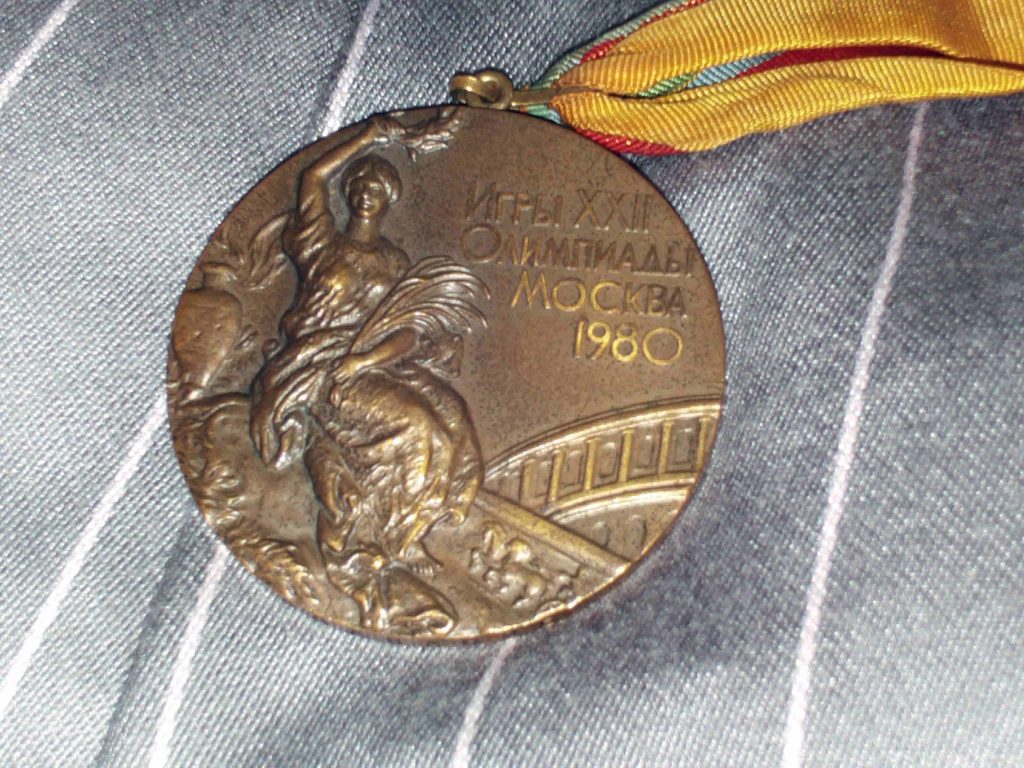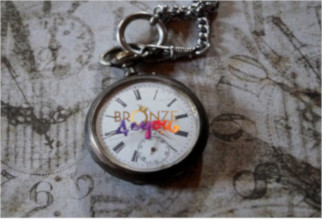Today in most competitions of different sports, medals are a symbol of recognition. But it wasn’t always that way, did you know that?

Every four years we live exciting moments both in the World Cups and in the Olympic Games. Also in every country and every continent, there are tournaments and competitions of the most popular sports. On those occasions, it is where one can accompany the deployment of an impressive amount of gold, silver, and bronze medals.
Olympic Games History
The Olympic Games began in Greece in 776 BC, according to historians. But in those beginnings, there were no medals. The winners of the competitions were summoned to the temple of Zeus to receive as an award an apple or a crown of olive and laurel. What mattered most to those winners was honor and glory and immortalized in the books of their scholars. Thus the legends of arrived at the present Leonidas de Rodas, the great athlete of the ancient world, or Cinisca, the Spartan princess who was the first woman to win an Olympic competition, the written stories.
Inspired by the Olympic Games that the ancient Greeks organized in the city of Olympia between 776 BC and 393 AD, the modern Olympics were organized again in the 19th century. The first edition took place in Athens in 1896. There was the participation of 245 athletes.
From there, the number of participants was growing, including women, who competed for the first time in those of Paris 1900 although only in some modalities.
For that time, medals were used as prizes. The first medals for the winners were not gold, but silver with the images of Zeus, the goddess of victory Nike and the Acropolis of Athens. They also received an olive branch, in recognition of the games of antiquity.
You may also like…
How did the medals appear?
One of the reasons why medals began to be awarded at the Olympics was due to the military tradition of that time.
There is no denying that the Olympic games are battles between countries. A characteristic of ancient Greece was that although they shared a religion, the same basic culture and the same language, in addition to their common tribal origins, the independence of the polis was defended fiercely.
Few ancient societies were as belligerent as the Greek polis, although they were little militarized until the fourth century BC. C. The temples have representations in their pediments and their friezes with gods with clothing of hoplite (a citizen-soldier of heavy infantry).
In this context of crisis and a stratified world, the Olympic Games were aimed at a kind of peace: public life was paralyzed during the holidays since all official activity was suspended. During them, only matters of extreme urgency were resolved. A “sacred truce” was dictated among the cops. Public games were an occasion for rapprochement between the Greek states.
It is worth mentioning that the greatest military distinctions of the time were circular presents.
That tradition was that gave rise to the medals of honor and over time the color of these was making sense.
From military use to competitions
In modern times it was already a tradition in the United States that the troop commander received a gold medal while his subordinates were decorated with silver badges. That is why it is not surprising that the Olympic games held in this country began to be used to reward the champions.
The practice of awarding third-place bronze medals began at the 1904 Olympic Games in St. Louis, Missouri, before which only first and second place were awarded.
Since then, the Olympic medals have the following hierarchy:
- Gold to first place,
- Silver to second and
- The bronze to third place.
A peculiarity of bronze medals is that in some tournament sports, such as boxing, judo, taekwondo and wrestling, two bronze medals are awarded in each event, one for each semi-finalist eliminated or for the winners of the brackets of the repechage.
Meaning of metals in medals
But there is a deeper reason for the use of those metals for medals. This motive dates back to the Age of Man according to classical mythology.
Two famous literary works are the source of the division of the Age of Man. One was from the Greek poet Hesiod, considered by many to be the first Greek philosopher. The other work was that of Ovid, a Roman poet famous for many of his works as Metamorphosis. These two mentions a myth where he divides the life of a human being into different stages.
The bronze in Greek mythology
The myth has a general structure that presents a succession of stages, from a distant beginning in the time in which human beings lived in a similar way to the gods (Golden Age) until the time of who exposes the story (Iron Age). Everyone has their vision of those stages. In truth, Hesiod divided the Age of Man and Ovio into four periods.
What the two agreed on was in the first three ages of man:
- The Golden Age, a time that reigned Justice and Peace. Represents the time of the gods.
- The Silver Age, a time that Jupiter gives men the seasons of the year, so they learn the art of agriculture and architecture. It represented Youth.
- The Bronze Age, men live for war, but they are not ruthless. For that reason it represented war.
Based on these three ages by Greek mythology, it was determined that the medals with which they are awarded would be gold, silver, and bronze.
Winning a bronze medal is better
How can you be like this? Do not receive those who win third place?
Yes, it is, but in the year of 1995, social psychologists Victoria Medvec, Scott Madey and Thomas Gilovich did an investigation on the effects of the consequent thinking and feeling on athletes who won bronze medals.
The study showed that athletes who won the bronze medal were significantly happier with their victory than those athletes who won the silver medal.
The athletes who won silver medals were more frustrated because they had lost the gold medal, while the bronze medalists were simply happy to have received some honor (in fact they had not won any in fourth place). This is more pronounced in qualifying competitions, where bronze medals are won by winning a playoff, while silver medals are awarded after a defeat in the final.
What are Olympic medals made of?

If you think that the medals are made of the material that they are named, I regret to say that it is not so.
Truly the gold medal has a composition of the three metals that are delivered in the Olympics (gold, silver, and bronze). Although it is called gold, only it has a 1.34% gold and 92.5% silver and 6% copper, which is based on alloy bronc metal.
The medal silver, on the other hand, it consists of 92.5% silver and 7.5% copper. We remember that silver is a soft material that has to go with a material that is hard so that a solid piece can be given. However, that 7.5% could be another material better valued as bronze.
Finally, the bronze medal consists of 97% copper, 2.5% zinc and 0.5% tin.
Even in that sense, we could say that the bronze medal is the most authentic. As it is an alloy of copper and tin with nine parts of copper and one part of a tin and in some cases, some zinc is added in the composition. Based on that we can say that the bronze medal is made entirely of bronze.
But really what is the real value of a medal? Does it matter whether or not it is the material that names it? Not really. This is what least interests an athlete or athlete who wins it.
The meaning of receiving it is that it represents a prize, a distinction, an award or a reward that was given to someone for some merit or service. It is usually a compensation as recognition of an effort or an achievement. Yes, that as if the medal told him. Well done! It was worth your effort !!! That feeling is incomparable!



